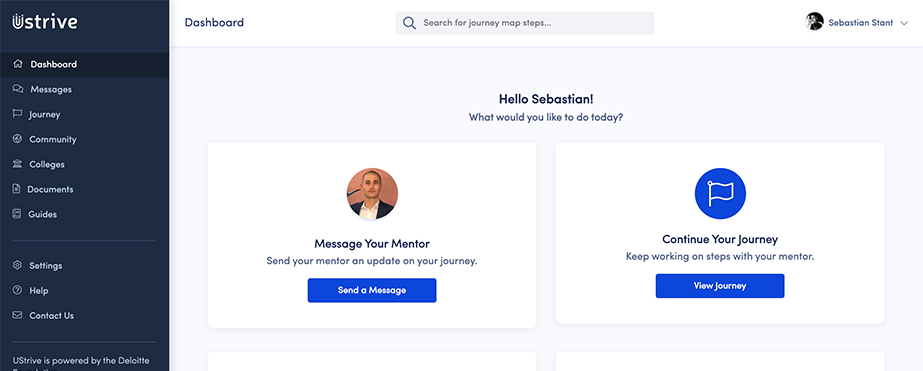Goal
International Applicants
Understand the key differences between international and domestic applications.
International students are defined by The Common App (TCA) as students who have non-US citizenship and are not US permanent residents.
TCA makes the application process easier to navigate for all students, including international students. They maintain the same process for domestic and international students with a few minor differences, such as questions about:
Citizenship and residency
Application fees
Testing
Payment
In addition, schools may individually choose to add additional questions for international students.
What are the similarities for international and domestic applicants?
The majority of the application process is shared by both international and domestic students. All applicants answer the same application questions, write essays, and compile their personal histories.
Both domestic and international students should prepare for the college application process by building college lists, researching deadlines specific to their programs, and building their resumes.
What are the major differences?
Schools may have different application processing fees for international and domestic students. If you are NOT a U.S. citizen or permanent resident, you pay the international application fee (if a fee is required).
Some schools may require English proficiency exams or waivers for international students whose primary language and/or language of instruction is not English.
Common Application can only accept transcripts from U.S. and English Canadian institutions. If you attend a school or earned your degree outside of the United States, your program may require that you submit your international coursework to a US-based evaluation service for a credit evaluation. Credit evaluations are services performed by independent agencies that assess international qualifications and compare them to metrics used by US institutions. Check with the international admissions office at the U.S. institutions where you are applying as the school may recommend that you use a specific credential evaluation service. Be sure to contact the transcript evaluation service as early as possible, as it can take several weeks to process your transcript(s) once received.
Additional Considerations:
Managing your time is essential to finishing your application process as some aspects of your application may require months of planning, including your SAT/ACT scores, TOEFL scores, essay, and letters of recommendation.
Not all schools accept fee waivers from international students as fee waivers are a school-specific policy.
Not all schools offer financial aid to international students. Federal financial aid is only accessible to US students, international students may have to utilize outside scholarships. Further, a student visa may complicate the ability to work in the US.
If you have school specific questions, you can ask them by contacting the admissions office at the school through the school’s individual webpage directory.
Getting accepted into the college is one step into coming to the U.S for school. However, students will still need to apply for a student visa.
Helpful resources:
To understand more about the college application process, check our guide here.
To see Common App’s resource sheet for international students, click here.
To better understand how to navigate the Common App, use their comprehensive guide here.
type: embedded-entry-inline id: 5sAU1I8wgiy0jPznJeyb9p
Want to learn more?
A mentor can help with this topic & many more. Join thousands of students & pick a mentor today!
It's 100% free, forever.

© UStrive 2022, All Rights Reserved


